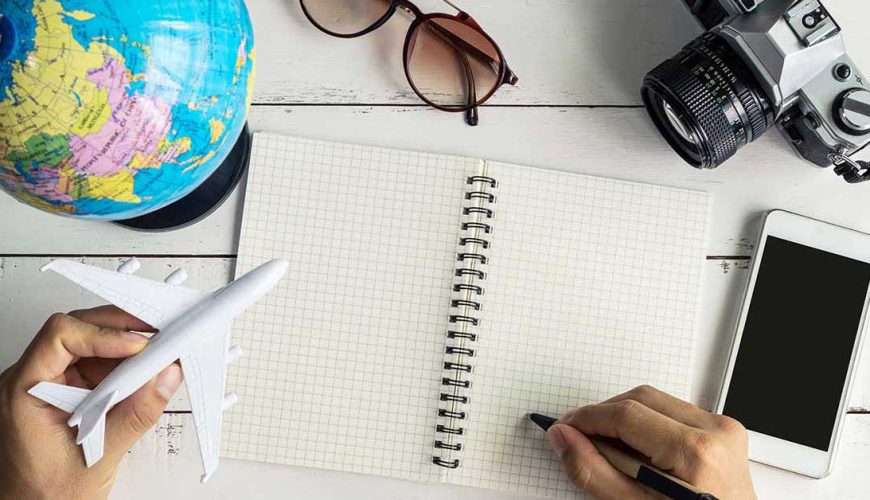Cultural Etiquette in the UAE: What Every Tourist Should Know
Visiting the UAE offers a unique opportunity to experience a blend of modern luxury and rich cultural traditions. However, for many international tourists, understanding the local customs and etiquette can be a new and essential part of the travel experience. This guide will walk you through the critical aspects of cultural etiquette in the UAE, helping you navigate your visit with respect and appreciation for local traditions. Understanding and respecting cultural etiquette in the UAE is not just about following rules but enhancing your travel experience. The UAE has deep-rooted traditions, many of which are influenced by Islamic culture. Being mindful of these customs, especially for first-time visitors, can help avoid misunderstandings and show respect for the local way of life. Whether exploring the iconic cities of Dubai and Abu Dhabi or visiting more traditional areas, following the proper etiquette will ensure you leave a positive impression. 1. Dress Code in the UAE The UAE has a modest dress code, which is especially important in public places, mosques, and traditional areas. While the dress code is relaxed in tourist-heavy spots, such as resorts and beaches, it’s essential to be respectful in more conservative environments. For Women: Modest clothing that covers the shoulders and knees is expected, particularly in public spaces and religious sites. Headscarves are typically required when visiting mosques. For Men: Men should avoid wearing sleeveless shirts in public. In mosques or religious areas, long trousers and modest shirts are preferred. Tourist Tip: When visiting mosques, both men and women should wear modest attire, and women should cover their hair. 2. Greetings and Communication In the UAE, greetings are warm but often formal, especially when meeting someone for the first time. Handshakes: A standard greeting is a handshake, but it’s important to note that in some cases, men and women may not shake hands, especially in traditional settings. Wait for the other person to offer a hand first. Common Phrases: “As-Salaam-Alaikum” (peace be upon you) is a common and respectful greeting, with “Wa-Alaikum-Salaam” as the response. Public Displays of Affection: Public displays of affection, such as kissing and hugging, are considered inappropriate in public settings. Tourist Tip: When addressing someone, using titles like “Sheikh” or “Sayed” for men and “Sheikha” or “Sayeda” for women is a sign of respect. 3. Public Behavior Public behavior in the UAE should always be respectful. The country values calm, polite interactions, and certain behaviors are strictly prohibited. Swearing and Loud Behavior: Swearing, shouting, or engaging in loud, aggressive behavior can result in fines or legal consequences. Public Displays of Affection: Holding hands may be acceptable for married couples, but anything more, such as kissing, is generally frowned upon in public spaces. Littering: Littering is not only frowned upon but can lead to hefty fines. Tourist Tip: Maintaining a calm demeanor in public settings is key to respecting local customs. 4. Respect for Religion Islam is the official religion of the UAE, and understanding Islamic customs is crucial for respectful travel. Prayer Times: Muslims pray five times a day, and visitors may hear the call to prayer throughout the day. It’s respectful to avoid loud activities during this time, particularly near mosques. Ramadan: During the holy month of Ramadan, Muslims fast from dawn until sunset. While tourists are not required to fast, eating, drinking, or smoking in public during daylight hours is prohibited. Visiting Mosques: Non-Muslims are welcome to visit many mosques, but it’s important to dress modestly and follow any guidelines provided. Shoes should be removed before entering prayer areas. Tourist Tip: If visiting during Ramadan, be mindful of the customs and explore the cultural iftar meals available after sunset. 5. Social Customs When visiting someone’s home or being hosted by locals, there are several social customs to keep in mind. Removing Shoes: It is customary to remove your shoes before entering someone’s home. Hospitality: UAE locals are known for their hospitality. If offered food or drink, it is polite to accept. Offering Gifts: When offering gifts, avoid alcohol or items made of pork, as these may be considered inappropriate. Tourist Tip: When accepting food or gifts, it is polite to use your right hand, as this is a cultural norm in many Arab countries. 6. Photography Photography is a wonderful way to capture your travel memories, but there are some important rules to follow in the UAE. Respecting Privacy: Avoid taking photos of people, particularly women, without their permission. This is considered highly disrespectful and may even result in legal action. Government Buildings and Military Sites: Photography of government, military, or strategic locations is prohibited. Tourist Tip: When in doubt, ask for permission before taking photos, especially in local markets or traditional areas. 7. Tipping and Financial Etiquette Tipping is not mandatory in the UAE but is appreciated in many service-based settings. Restaurants: A 10-15% tip is common in restaurants, especially for good service. Some restaurants may include a service charge in the bill, so check first. Taxis: Rounding up the fare or offering a small tip is appreciated by taxi drivers. Hotels: Porters and housekeeping staff often receive tips, usually a small amount in local currency. Tourist Tip: While tipping is not obligatory, offering a small tip for good service is a way to show appreciation. Conclusion: Understanding and following cultural etiquette in the UAE not only shows respect for local customs but also enhances your travel experience. From modest dressing and respectful greetings to mindful behavior in public and religious sites, these guidelines ensure that you can navigate the UAE’s rich cultural landscape with ease and grace. Familiarizing yourself with these customs before your trip will help you avoid misunderstandings and make your visit more enjoyable. Ready to explore the UAE? Contact our client’s travel services for expert guidance and assistance with your trip planning.
Visa-Free Destinations from the UAE: Where Can You Travel Without a Visa?
The world is full of possibilities for UAE residents and citizens, and many exciting destinations can be explored without the hassle of applying for a visa in advance. Whether you’re looking for a spontaneous getaway or want to avoid the paperwork, visa-free or visa-on-arrival destinations provide the perfect solution. This guide will introduce you to some of the best places you can visit without a visa, making your travel planning more accessible and convenient. Traveling to visa-free destinations saves you time and money and offers a level of flexibility that many travelers appreciate. There is no need to wait for visa approvals or worry about extra costs—these countries allow you to travel on short notice. Whether you’re craving an exotic island escape or a cultural city adventure, traveling visa-free from the UAE is an exciting and stress-free option. 1. Georgia Visa-Free Stay: Up to 90 days. Entry Requirements: A valid passport. Why Visit: With its stunning landscapes, ancient cities, and rich history, Georgia is an ideal destination for UAE residents seeking adventure and culture. Travel Tips: Visit Tbilisi’s Old Town, take a trip to the vineyards of Kakheti, and explore the majestic Caucasus Mountains. 2. Seychelles Visa-Free Stay: Up to 30 days. Entry Requirements: A valid passport, return ticket, and proof of accommodation. Why Visit: Seychelles is a tropical paradise known for its crystal-clear waters, luxurious resorts, and serene beaches. Travel Tips: Don’t miss the beautiful beaches of Anse Lazio and the vibrant marine life at Aldabra Atoll. 3. Maldives Visa-Free Stay: Up to 30 days. Entry Requirements: A valid passport, proof of accommodation, and return ticket. Why Visit: Famous for its luxurious overwater villas and pristine beaches, the Maldives is a perfect retreat for those seeking relaxation and indulgence. Travel Tips: Book a stay at a private resort island and enjoy water activities like snorkeling and diving in the crystal-clear waters. 4. Sri Lanka Visa-on-Arrival Stay: Up to 30 days (ETA required). Entry Requirements: Electronic Travel Authorization (ETA), valid passport, and return ticket. Why Visit: With its rich history, beautiful landscapes, and delicious food, Sri Lanka is a great option for UAE travelers looking for an affordable and culturally enriching experience. Travel Tips: Explore the ancient city of Anuradhapura, take a scenic train ride to Ella, and enjoy the beaches of Mirissa. 5. Thailand Visa-on-Arrival Stay: Up to 15 days. Entry Requirements: Passport valid for 6 months, return ticket, and proof of accommodation. Why Visit: Thailand offers a mix of stunning beaches, vibrant cities, and rich cultural heritage, making it a must-visit for UAE travelers. Travel Tips: Explore the temples of Bangkok, relax on the beaches of Phuket, and experience the lively markets of Chiang Mai. 6. Mauritius Visa-Free Stay: Up to 90 days. Entry Requirements: Valid passport, return ticket, and proof of accommodation. Why Visit: Known for its white sandy beaches, turquoise waters, and lush green mountains, Mauritius is the perfect getaway for relaxation and adventure. Travel Tips: Visit the Seven Coloured Earths, enjoy water sports like kite surfing, and relax at a luxury beachfront resort. 7. Azerbaijan Visa-on-Arrival Stay: Up to 30 days. Entry Requirements: Valid passport and proof of accommodation. Why Visit: Azerbaijan combines modern cities with ancient history, offering a unique travel experience. The capital city, Baku, is known for its blend of futuristic architecture and traditional culture. Travel Tips: Visit the Flame Towers in Baku, explore the medieval old city, and take a day trip to the mud volcanoes and Gobustan National Park. 8. Armenia Visa-Free/On-Arrival Stay: Up to 180 days for UAE citizens. Entry Requirements: Valid passport. Why Visit: Armenia is rich in culture, history, and stunning natural landscapes. With ancient monasteries, mountain scenery, and warm hospitality, it’s a hidden gem in the region. Travel Tips: Explore the ancient Geghard Monastery, visit Lake Sevan, and hike the scenic Dilijan National Park. Conclusion: Visa-free travel opens up a world of possibilities for UAE citizens and residents, offering convenience, flexibility, and spontaneity. From the exotic beaches of the Maldives to the cultural riches of Georgia and Armenia, there’s a destination for every type of traveler. Now is the perfect time to explore these incredible countries without the hassle of applying for a visa. Contact Omar Tourism LLC to help plan and book your next visa-free adventure.
The Ultimate UAE Travel Checklist: What to Pack and Prepare
Planning a trip to the United Arab Emirates (UAE) is an exciting adventure, but proper preparation ensures a smooth and enjoyable experience. From the bustling streets of Dubai to the serene deserts of Abu Dhabi, the UAE offers a unique blend of modern luxury and rich cultural heritage. Packaging and preparing appropriately is essential to make the most of your journey. This ultimate UAE travel checklist will guide you through everything you need to know, ensuring you’re fully equipped for your trip. Traveling to a new country can be overwhelming, especially regarding packing and preparation. The UAE’s unique climate, culture, and regulations require careful consideration, and having a comprehensive travel checklist can save you from last-minute stress and potential mishaps. Following this guide will prepare you to navigate the UAE’s customs and enjoy a worry-free vacation. Avoid common packing mistakes and ensure you have everything you need for a successful trip to the UAE. Essential Documents Before you embark on your journey, make sure you have all the necessary documents: Passport: Ensure your passport is valid for at least six months beyond your departure date. Visa: Check the specific visa requirements for your nationality and ensure you have the appropriate visa for your stay. Travel Insurance: It’s wise to have travel insurance that covers medical emergencies, trip cancellations, and lost luggage. Flight Tickets: Keep digital and printed copies of your flight tickets. Hotel Reservations: Have confirmation details for all your accommodations. Copies of Important Documents: Make photocopies or digital copies of your passport, visa, insurance, and other essential documents in case they are lost or stolen. Omar Tourism Tip: Store your documents in a travel wallet or a secure digital cloud service for easy access. Clothing The UAE’s climate can vary, so packing the proper clothing is crucial: Lightweight, Breathable Clothing: The UAE is generally hot, so pack light, breathable fabrics like cotton or linen. Modest Attire: When visiting religious sites or rural areas, wear modest clothing that covers your shoulders and knees. Women may need to cover their heads in certain places. Swimwear: Pack swimwear for the beach or hotel pools, but remember that swimwear should only be worn in designated areas. Layering Options: If you plan to visit the mountains or desert camping, bring a light jacket or sweater for cooler evenings. Comfortable Footwear: Pack comfortable walking shoes for exploring cities and sandals for the beach. Omar Tourism Tip: Dubai’s malls and restaurants often have strong air conditioning, so a handy light shawl or jacket can be helpful. Health and Safety Items Prepare for your health and safety with these essential items: Medications: Bring any prescription medications you require and a copy of your prescription. It is also wise to pack over-the-counter medications for common ailments like headaches or upset stomachs. Sunscreen: The UAE’s sun can be intense, so high-SPF sunscreen is necessary. First Aid Kit: A basic first aid kit with band-aids, antiseptic wipes, and pain relievers can be handy. Vaccinations: Check if any vaccinations are required or recommended before your trip. Reusable Water Bottle: Stay hydrated by carrying a reusable water bottle, especially during outdoor activities. Omar Tourism Tip: Tap water in the UAE is generally safe, but bottled water is widely available. Technology and Gadgets Stay connected and capture your memories with these must-have gadgets: Smartphone: Your smartphone will be your go-to for maps, communication, and photos. Chargers and Power Banks: Bring chargers for all your devices and a power bank for long days out. Power Adapters: The UAE uses Type G power outlets (three-pin), so bring an adapter if your devices use a different plug type. Portable Wi-Fi Device: Consider renting a portable Wi-Fi device to stay connected without relying on public Wi-Fi. Camera: If you’re a photography enthusiast, bring a good camera to capture stunning landscapes and architecture. Omar Tourism Tip: Download helpful travel apps for navigation, translation, and currency conversion. Money and Payment Methods Manage your finances effectively while traveling: Currency: The UAE’s currency is the Dirham (AED). It’s a good idea to have some cash on hand for small purchases or in case of emergencies. Credit and Debit Cards: Most places in the UAE accept major credit and debit cards. To avoid any issues, notify your bank of your travel plans. Budgeting: Plan your budget, considering expenses like meals, transportation, and activities. Omar Tourism Tip: ATMs are widely available in cities, but check with your bank about international transaction fees. Cultural and Practical Tips Understanding local customs and practicalities will enhance your experience: Local Customs: The UAE is a Muslim country with specific cultural norms. Respect local customs, particularly regarding dress, public behavior, and religious practices. Language: Arabic is the official language, but English is widely spoken. Locals can appreciate learning a few basic Arabic phrases. Etiquette: Always ask for permission before taking photos of people, particularly women. Public displays of affection are also discouraged. Legal Considerations: The UAE has strict laws regarding alcohol, drugs, and public behavior. Familiarize yourself with these to avoid any legal issues. Omar Tourism Tip: Fridays are the holy day in the UAE, so expect some businesses to be closed or have reduced hours. Packing Tips Pack smartly to avoid excess baggage and make your travel easier: Pack Light: Stick to the essentials and avoid overpacking. Use packing cubes or travel organizers to keep your belongings neat and accessible. Check Airline Baggage Regulations: Be aware of your airline’s baggage allowance to avoid extra fees. Carry-On Essentials: If your checked luggage is delayed, pack important items, such as medications, documents, and a change of clothes, in your carry-on bag. Omar Tourism Tip: Roll your clothes instead of folding them to save space and reduce wrinkles. Preparation Checklist Complete these tasks before you leave to ensure a hassle-free trip: Confirm Bookings: Double-check all your flight, hotel, and tour reservations. Check Weather Forecasts: Review the weather forecast for your destination to make any last-minute packing adjustments. Set Up Travel Alerts: Sign up for travel alerts from your airline




